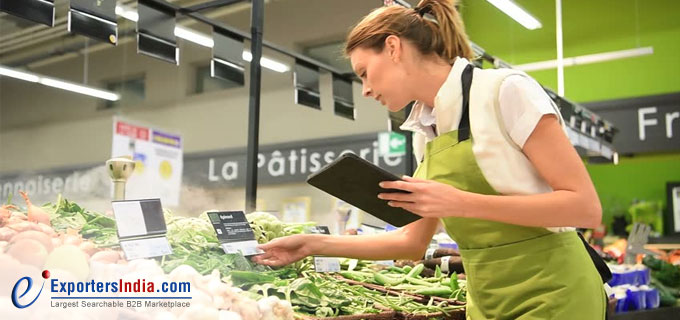No matter how many grocery delivery chains open up to let you order groceries, meat, and even fresh fruit and vegetables online, the charm of going to the supermarket and surrounding yourself with a multitude of flavors and aroma is never going to fade. The fun of exploring through the endless aisles and discovering new items in different shelves and racks still attracts a majority of people. However, you need to be very careful with the supermarket you choose!
You might be carrying home pathogens and bacteria with your food items instead of the nutrients that you intended to. Yes, there are a number of food security risks posed to the food in your supermarkets. From the raw meat and poultry department to the staff working there, many things may be posing danger to your food’s quality. Here are the biggest food security risks associated with supermarkets along with super ways to manage them.

One of the biggest threats to food safety in supermarkets and even retail stores is that of pest infestation. As these supermarkets usually stock tens of thousands of food items including types of bread, FMCG products, fruits vegetables, meat, etc., procured fresh from bakers, vegetable suppliers, fruit suppliers, poultry farms, etc., the risk of pests being attracted to them and living or feeding on them increases. Not just pests like flies, drain flies, ants, cockroaches, and product insects, even rodents like rats and mice are a big threat to food safety in supermarkets.
How To Prevent It?
Rodents carry diseases through fleas, ticks, lice, etc., and contaminate food with their droppings. Rodenticides can be used to prevent rats and mice. Even rat poison and rat traps installed at appropriate places can stop rodent attack.
Cockroaches are usually attracted by any little residue of food and expel saliva or defecate while crawling around. Good inspection and cleaning of the place, maintenance of drains/garbage, etc., can be helpful.
Flies, ants, fruit flies, and drain flies are attracted by the odor of the grocery, fresh fruits or the sewage. Proper cleaning, regular garbage disposal, cleaning of drains, shutting of doors or any other cracks can prevent it.
( Also Read: Food Processing Industry in India - Rising And Ripening )
Large supermarkets tend to have hundreds of employees working for them. Some may be handling the billing & accounts, some may be assisting the customers with their purchases, and some are asked to take care of the placement and stocking of items in the bays and racks. Poor hygiene of these employees might be a great threat and risk to food safety and security. The staff at supermarkets is a big carrier of bacteria that can easily spread from one item to the other if proper hygiene is not practiced.
How To Prevent It?
Practicing proper hygiene should be propagated among employees. They should be asked to keep their hands clean, especially after using the loo or going out.
They should be asked to keep their gloves on inside the store and make sure not to touch their face, hair, or other body parts.
Employees should be asked to stay home if they are sick. Virus or bacteria from a sick person transfers quickly in food.
Cleaning hands after touching any cleaning items like mops, wipers, cloths, etc.
Smoking inside the supermarket complex should also be banned.
Another food security risk that is common in supermarkets is cross-contamination. As supermarkets are stocked with a variety of food items that include all types of raw and fresh products like fresh vegetables, fruits, raw meat, etc., passing on of the infectious pathogens becomes possible. The deli section, fresh fruits and vegetable section, and the meat section should be under careful watch and monitoring to avoid cross-contamination.
How To Prevent It?
The utensils, knives, or boards used for cutting of raw meat should be kept separate. Any splash of meat juice into any other food item can cause cross-contamination.
The utensils carrying raw meat should always be washed as it creates a ground for bacteria and other pathogens to breed which might cross-contaminate other items.
The trolleys for carrying food items should also have a separate section for these items a person should be assigned to ensure buyers do not touch raw meat with bare hands and is packed properly for them to bill.
Packaged products and fresh or raw products should be kept separated to avoid any type of cross-contamination as well.
( Also Read: What are the Documents Required for Obtaining a Food Business License as well as its Renewal in India? )
These were the biggest food safety and security risks in the supermarkets. However, this list does not cover the minor food risks like unmaintained buildings of the supermarket which might be a breeding home for pests or the walls have molds or termites. Other than that, another food risk is the careless behavior of employees who tend to neglect the expiration date or stack new items in front of the older ones. Complete checking of each item brought into the market is also important to ensure that no food fraud is taking place and all items adhere to the food safety guidelines and standards.
Add Comment